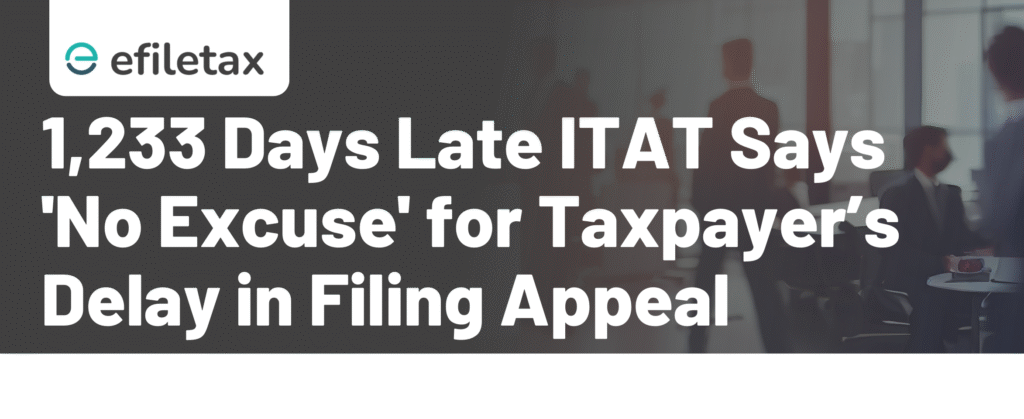
Taxpayer Unable to Sign Appeal Is Not Reasonable Cause, Says ITAT
In a recent case, the Income Tax Appellate Tribunal (ITAT) refused to condone a delay of 1,233 days in filing an income tax appeal, ruling that the taxpayer’s inability to sign the appeal due to alleged health issues was not a reasonable cause under law.
This ruling clarifies an important procedural point: Merely citing personal inability without sufficient proof won’t save delayed appeals.
Let’s break this down for you.
Key Case Facts
- Appeal: Filed before ITAT Kolkata Bench
- Delay: 1,233 days (over 3 years)
- Claimed Reason: Taxpayer (an individual) said he couldn’t sign and file the appeal in time due to health conditions and advised rest
- Issue: Whether this reason qualifies as a “reasonable cause” under the Income Tax Act, 1961
What the ITAT Held
The tribunal held that:
- No medical evidence was furnished to prove prolonged illness
- Filing appeal is a statutory responsibility, and due diligence is expected
- Mere delay due to “inability to sign” without justifiable reason cannot override limitation periods
Legal Basis: What Is “Reasonable Cause”?
Under Section 253(5) of the Income-tax Act, 1961:
“The Tribunal may admit an appeal or permit the filing of a memorandum of cross-objections after the expiry of the relevant period if it is satisfied that there was sufficient cause for not presenting it within that period.”
Courts have consistently held that:
- Reasonable cause must be real, substantive, and supported by evidence
- Mere negligence, ignorance, or routine excuses are not acceptable
- Collector, Land Acquisition v. Mst. Katiji (1987) 167 ITR 471 (SC) – which allowed a liberal view on delay
Practical Implications for Taxpayers
Here’s what you should know before filing an appeal:
✅ Stick to statutory deadlines (30–60 days from order date)
✅ If delayed, collect valid proof – medical records, legal documents, etc.
✅ Consult a tax professional early to avoid procedural lapses
Expert Tip:
📝 “Delay condonation is not a matter of right – it’s an exception.
— Tax Consultant at Efiletax
Summary
ITAT Kolkata refused to condone a 1,233-day delay in filing appeal, ruling that the taxpayer’s claim of inability to sign due to health issues was unsupported.
FAQs
Q1. What is the standard time limit to file an appeal before ITAT?
A: Normally, 60 days from the date of receiving the order under Section 253(3) of the Income-tax Act.
Q2. Can illness be a valid cause for delay?
A: Yes, but it must be supported with proper medical evidence and must show that the illness genuinely prevented action.
Q3. What happens if my appeal is dismissed as time-barred?
A: You lose the opportunity to challenge the order. You can try approaching the High Court under a writ petition, but success is rare without a strong reason.
Final Thoughts
If you’re facing a tax notice or unfavorable order, act fast. Don’t wait until it’s too late.
Need help filing your tax appeal on time?
Let Efiletax guide you through every step — from drafting to submission.
👉 Talk to our experts now